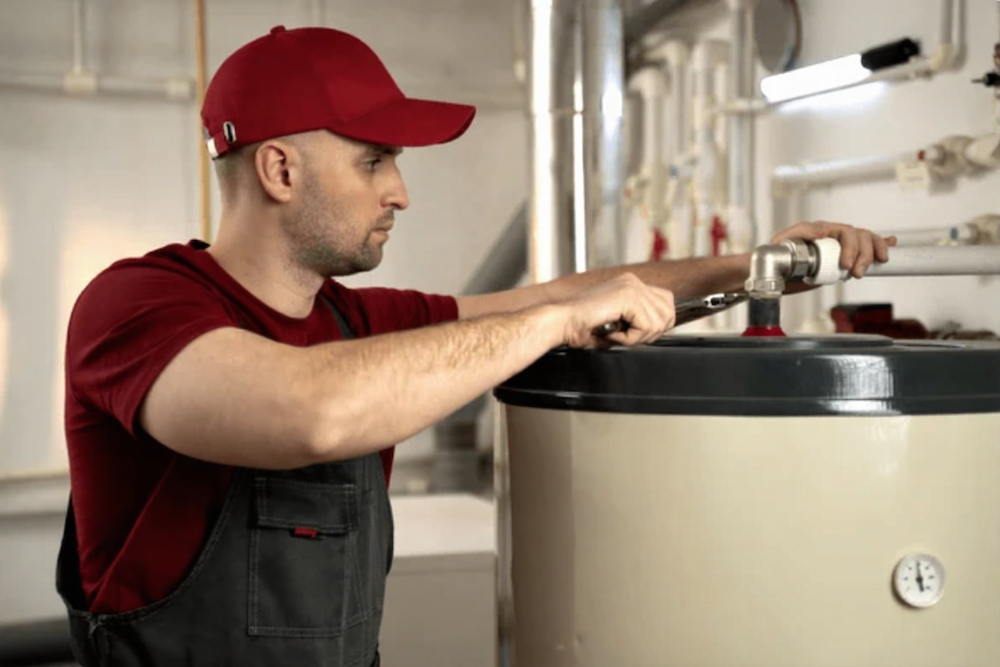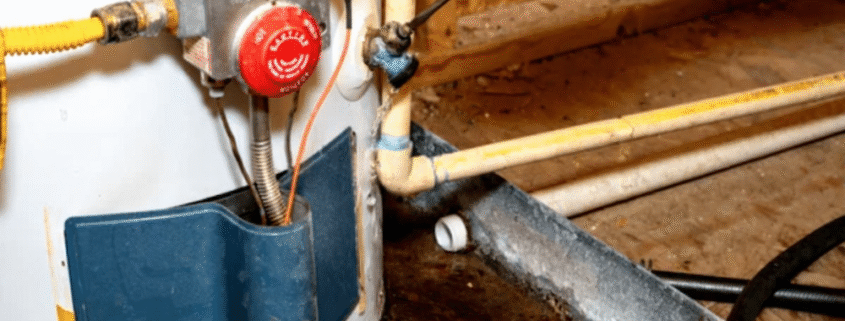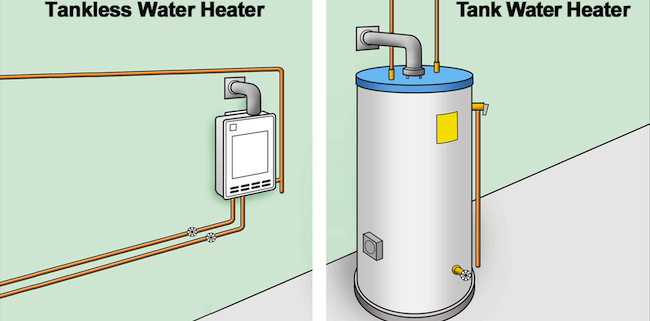TL;DR: Why Water Heater Repair Matters
Water heater repair keeps your system working when you lose hot water or notice signs of failure. This guide explains what causes breakdowns, how repair service actually works, and why calling a professional protects your home and energy bills.
You’ll discover:
- The most common reasons water heaters stop delivering hot water
- Key components inside electric and gas units and how they fail
- Simple maintenance steps to extend your heater’s lifespan
- Why a licensed plumber ensures safe, long-lasting performance
- How fast service prevents leaks, water damage, and major breakdowns
With proper maintenance and repairs, your water heater runs efficiently, your showers stay warm, and your home stays protected from costly damage.
When hot water stops unexpectedly, daily life gets disrupted fast. A quiet morning routine turns into cold showers and frustration. Water heater repair is designed to prevent that chaos.
It steps in when your tank fails, the pilot light goes out, or the heating elements burn out. Hot water keeps flowing, and your home stays comfortable.
Why Water Heater Repair Matters
The shower turns cold, you check the utility room, and something is clearly wrong. Without quick repair, small issues worsen fast.
A malfunctioning thermostat overheats the tank.
A failed heating element leaves the water ice-cold.
A neglected leak grows until it damages the flooring and drywall.
Timely water heater repair restores heat, stops leaks, and prevents system failure. It also protects you from hazards like gas leaks, electrical shorts, or pressure buildup.
Professional service identifies the root cause fast. Whether it’s a tripped breaker, a worn anode rod, or a bad pilot assembly, repairs keep the unit stable while preventing bigger, more expensive problems.
How Water Heater Repair Works
When a water heater stops heating properly, a licensed technician checks power sources, pressure levels, thermostat settings, and internal components.
Electric units often fail due to burned heating elements or faulty thermostats.
Gas units commonly struggle with pilot-light issues, clogged burners, or failing gas-control valves.
A repair involves diagnosing the problem, replacing worn parts, flushing sediment, or sealing minor leaks.
Most tanks have safety systems that shut the heater down when conditions become unsafe.
After repair, those safety functions are tested to ensure the heater runs efficiently.
Regular testing keeps the heater ready year-round. Every few months, check for leaks, listen for unusual sounds, and verify water temperature stays steady. Small steps like these prevent major failures during peak usage.
Top Benefits of Timely Water Heater Repair
A reliable water heater protects your home’s comfort, efficiency, and safety. Hot water supports cooking, cleaning, laundry, and bathing.
Ignoring issues leads to energy waste, skyrocketing bills, and premature tank failure.
Timely repairs extend the unit’s lifespan, prevent tank bursts, and protect your floors from water damage. Even a small leak can create mold, corrosion, and structural problems.
Fixing issues early is cheaper, safer, and far less stressful than replacing an entire system.
Many homeowners appreciate the peace of mind that comes with a well-maintained water heater—especially during winter.

How to Fix Common Problems With a Water Heater
Each home has different plumbing layouts and heater types. Start by confirming the unit’s power source, capacity, and model type.
Electric heaters generally require element replacement or thermostat adjustment.
Gas heaters may need burner cleaning, pilot assembly repair, or gas valve replacement.
Key steps include:
- Checking breakers or gas supply
- Testing the thermostat
- Flushing sediment buildup
- Inspecting the pressure relief valve
- Checking for tank corrosion or leaks
Once repairs are made, test the system by running the hot water for several minutes and verifying the heater maintains temperature.
Professional Help for Water Heater Repair
Most homeowners rely on a licensed plumber for water heater repair. A professional works safely with electricity or gas, checks for hidden issues, and ensures the heater runs efficiently.
They evaluate the tank, venting, wiring, and water pressure to prevent future failures.
If you’re unsure who handles hot water heater repair, a qualified plumbing company inspects your system, recommends the right fix, and completes repairs quickly.
You’ll also get expert advice on maintenance, temperature settings, and part replacements that improve longevity and safety.
Routine Care Keeps Your System Reliable
Once repaired, maintenance is simple.
Flush the tank annually to remove sediment.
Check for leaks monthly.
Verify the pressure relief valve moves freely.
Replace the anode rod every few years to prevent corrosion.
A little care now saves major stress later. When temperatures drop or usage increases, you can relax knowing your water heater is ready.
Trust the Pros to Keep Your Hot Water Running
Water heater repair keeps your home comfortable and protected.
It restores consistent hot water, prevents leaks, and ensures safe operation.
Skilled plumbers repair electric and gas heaters with precision, keeping your system dependable year-round.
Schedule a professional repair for lasting peace of mind and enjoy worry-free hot water every day.
Learn more about our plumbing, heating, and water heater services here.














